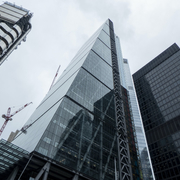PropTech: Revolutionizing real estate with disruptive technology
Recent history has shown that the way companies in different sectors can remain relevant in the market is through disruptive innovation. To this end, smart leaders in the real estate sector are leveraging emerging technologies while others avoid new tools. The technology applied to the Real Estate is what we know as PropTech.
In a society whose epicenter orbits around technology, even if we are not actively looking for ways to disrupt, the disruption itself will find the new technologies on its own. This claim, which may seem more complex in its meaning than it really is, has a very simple translation: resistance to adopting new technologies can hinder innovation and this, in turn, can lead to unintentional and potentially dangerous forms of negative disruption.
Analyzing this topic in depth requires much more than a simple article can offer, for this reason, what we propose from WITHYOU is a small decalogue of the most impactful technological trends that are revolutionizing the real estate industry today, and that we advise to be taken into account by Real Estate professionals.
Reducing the carbon footprint
As Europe and the rest of the world seek to fight climate change and, in light of any comprehensive policy implemented by the UN, technologies that help reduce the carbon footprint of commercial properties will continue to develop. The real estate sector is a major contributor to climate change; therefore, "... there should be a much bigger bet on public and private sector incentives to boost energy efficiency.", according to Remy Raisner, founder and CEO of The Raisner Group.
Safer buildings
The key technological trend, post-COVID-19, will make buildings safer and healthier for their residents. This effort encompasses a variety of media, such as special filtros HEPA with UV lights, entrances without direct contact, and automated disinfection measures. The technology used to ensure safety will be very important in buildings, not only in the future, but in the present.
Smart Access Control
Smart access control is the number one investment owners can make to make their buildings more efficient. If we are allowed the comic license, with the use of these controls there are as many savings opportunities as there are property managers on the planet.
A real and progressive bet to Blockchain
It is true that Blockchain, as an industry trend, is starting to manifest, but still offers much more potential to revolutionize the industry. Data is the vital element of the real estate industry. However, given the large number of human connections that touch that data and the sometimes-subjective nature of the assessment, it causes the data to often be not entirely reliable. For Khushboo Jha from BuyProperly Limited, with a good Blockchain-based strategy and implementation, we would place some of this data in a single proven and reliable source.
AI-driven marketing and data collection
The future of properties in Real Estate is the marketing and collection of information through AI. When investing, precaution would have an excessive dependency on unreliable data that could wound the positive results of our investments. Verification is always necessary, but the scope and efficiency of this technology are staggering. Those who do not use AI will be left behind when assessing the best investment and business approach.
Focus scheduled learning
Until recently, finding the best area to invest and find profitable property used to take months using manual data collection and endless spreadsheets. This process now takes just a few minutes thanks to new technologies that allow us to introduce macro-data into computerized algorithms to provide investors with highly reliable estimates.
Tours in 3D videos
This is something that we had already seen in a previous article. All technology makes a big difference, but the one we've found that provides the greatest value and impact is 3D video tours. This allows buyers to determine whether the property is suitable before making a face-to-face tour. In reality, it allows a secure connection between buyers and sellers, a higher transaction speed and greater health protection for all parties involved.
Using streaming
One of the most prominent and disruptive trends in today's real estate sector is the prolific adoption of live video. Video in all its forms has long been used in areas such as marketing, sales, asset management... and as a communication tool in general. The real disruptor, however, is streaming. Beyond a face-to-face tour of a property, there is nothing more transparent than live video, where you cannot edit or hide what potential investors or buyers want to acquire, thus avoiding harmful time losses.
Rental management software
Rental management software saves time by automating a large quantity of tasks that previously required a huge number of hours and dedication by a human professional. Automation makes savings and, savings make profits. To give an example, the AppFolio mobile app has recently been recognized as the fastest growing number one company in 2020 by Fortune magazine.
User experience without human interaction
Buyer expectations have changed, and many are looking for short- or medium-term properties that do their best to limit human interaction. Technology that supports contactless experiences, such as keyless entry systems, will become increasingly popular, especially in “aparthotels”, which are residencies that don't have common areas and provide amenities for longer stays, such as dishwashers, refrigerators, and other small appliances.
No industry is immune from technological advances, but the real estate sector is a niche that has traditionally been slower to adopt new trends. Luckily, PropTech is booming and changing the way we buy, sell, and interact with our properties. The time has come to “step on the gas” in the technological transformation of the Real Estate.











